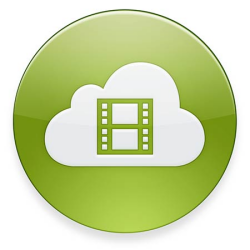 For various reasons people may want to extract the sound from a video file. To have that wondrous movie theme on your music player, or add it to your own video project. To use famous conversation lines elsewhere. To save your grandchild’s first attempts on talking for digital eternity. Etcetera.
For various reasons people may want to extract the sound from a video file. To have that wondrous movie theme on your music player, or add it to your own video project. To use famous conversation lines elsewhere. To save your grandchild’s first attempts on talking for digital eternity. Etcetera.
Well, that is all very well possible. Omnipresent and omnipotent VLC comes forth to your salvation. Of course you will be careful about copyright issues, I assume.
First get your video sources ready. Put the DVD in the disc drive. Find your video files on your harddisk, network or cloud storage. Or download a YouTube video.
 BTW, for downloading YouTube videos 4K Video Downloader is a nifty tool. Recently Google has made downloading videos much more difficult. Many webbrowser plugins do not work anymore and the same goes for services or standalone tools. But 4K Video Downloader still manages to do the job. For free. Just download and install the DEB-package.
BTW, for downloading YouTube videos 4K Video Downloader is a nifty tool. Recently Google has made downloading videos much more difficult. Many webbrowser plugins do not work anymore and the same goes for services or standalone tools. But 4K Video Downloader still manages to do the job. For free. Just download and install the DEB-package.
NOTE: there was a glitch after installing, since the program would not start. In the start menu editor I had to correct the path to the program’s executable (which is a script). It is a bit in an odd place.: ‘/usr/lib/4kvideodownloader/4kvideodownloader.sh’.
Then, at work!
- open VLC and go to Media > Open Disc…
- select the correct tab, i.e. ‘Disc’ if that is your source, or ‘File’ if the video is just that
- (theoretically you could paste the URL to a YouTube video on the ‘Network’ tab, but YouTube will block that connection; download the video first)
- on the ‘File’ tab choose ‘Add…’, from the drop-down menu at the bottom select ‘Convert’, select the appropriate profile (eg. ‘Audio – Vorbis’ or ‘Audio – MP3’), give a destination and a file name, and click ‘Start’
- OR: on the ‘Disc’ tab choose ‘DVD’ or ‘Blu-ray’ as appropriate and follow the procedure as above.
That’s it! Apart from the finishing touch…
 Since VLC will rip the full audio track from a video DVD, taking a long, long time and leaving you with a huge audio file, you will need further editing, eg. using Audacity. It is in the common repositories. To add the help file, look here.
Since VLC will rip the full audio track from a video DVD, taking a long, long time and leaving you with a huge audio file, you will need further editing, eg. using Audacity. It is in the common repositories. To add the help file, look here.
 Finally, add tags to the audio file, eg. using Kid3. The Ubuntu repository holds a rather old version, so add a PPA to install a more recent version. Make sure to install the kid3-qt package for a nice integration with KDE desktops.
Finally, add tags to the audio file, eg. using Kid3. The Ubuntu repository holds a rather old version, so add a PPA to install a more recent version. Make sure to install the kid3-qt package for a nice integration with KDE desktops.
Have a lot of fun!